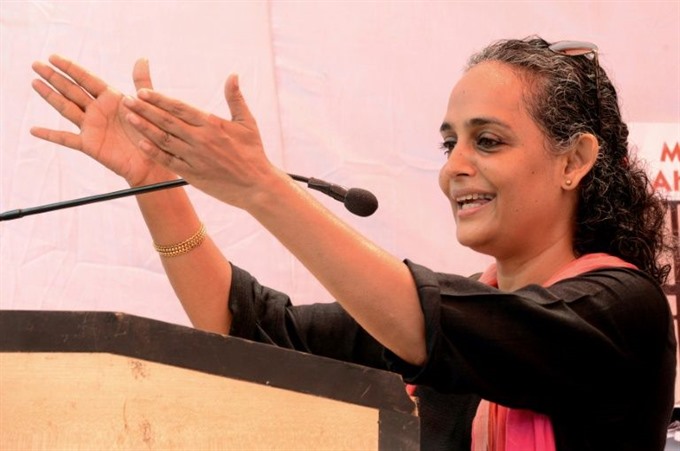 Life & Style
Life & Style
.jpg)
Arundhati Roy’s eagerly-awaited second novel goes on sale Tuesday, two decades after her prize-winning debut The God of Small Things propelled her to global fame and launched her career as an outspoken critic of injustice in her native India.
 |
| The eagerly awaited second novel by Indian writer and political activist Arundhati Roy, author of "The God of Small Things", is released today. — AFP Photo |
NEW DELHI — Arundhati Roy’s eagerly-awaited second novel goes on sale today, two decades after her prize-winning debut The God of Small Things propelled her to global fame and launched her career as an outspoken critic of injustice in her native India.
Roy became the first Indian woman to win the prestigious Booker Prize with her 1997 work, which sold around 8 million copies and turned the young author into a star of the literary world.
In the years that followed, she turned to non-fiction writing, taking on issues ranging from poverty and globalisation to the conflict in Kashmir in essays that were often highly critical of India’s ruling class.
Her campaigning earned her the wrath of many in the Indian establishment and has clearly influenced her latest novel The Ministry of Utmost Happiness, which she has said took 10 years to produce.
Publisher Penguin says it takes the reader "from the cramped neighbourhoods of Old Delhi into the burgeoning new metropolis" and on to the troubled Kashmir Valley and the jungles of central India, wracked by a long-running Maoist rebellion.
"There was this huge sense of urgency when I was writing the political essays, each time you wanted to blow a space open, on any issue," Roy said.
"But fiction takes its time and is layered... It is not just a human rights report about how many people have been killed and where. How do you describe the psychosis of what is going on? Except through fiction."
Roy was lauded at home when she became the first resident Indian to win the Booker for her novel about twins growing up in the southern state of Kerala. Previous Indian winners had lived outside the country.
The Times of India in an editorial titled Novel Indian quoted a "prophecy" by James Joyce — "The East shall wake the West awake/And ye shall have night for morn" — which it said "seems to be coming true".
Roy recalled in a recent BBC interview how she was suddenly on the cover of every magazine — until she spoke out against India’s nuclear tests a year later.
"Not that I had a say in it, but I was being marketed as this new product of the global India," she said.
"And then suddenly the government did these nuclear tests... And I wrote this essay condemning the tests, and at that point the fairy princess was kicked off her pedestal in a minute." — AFP
.jpg)



